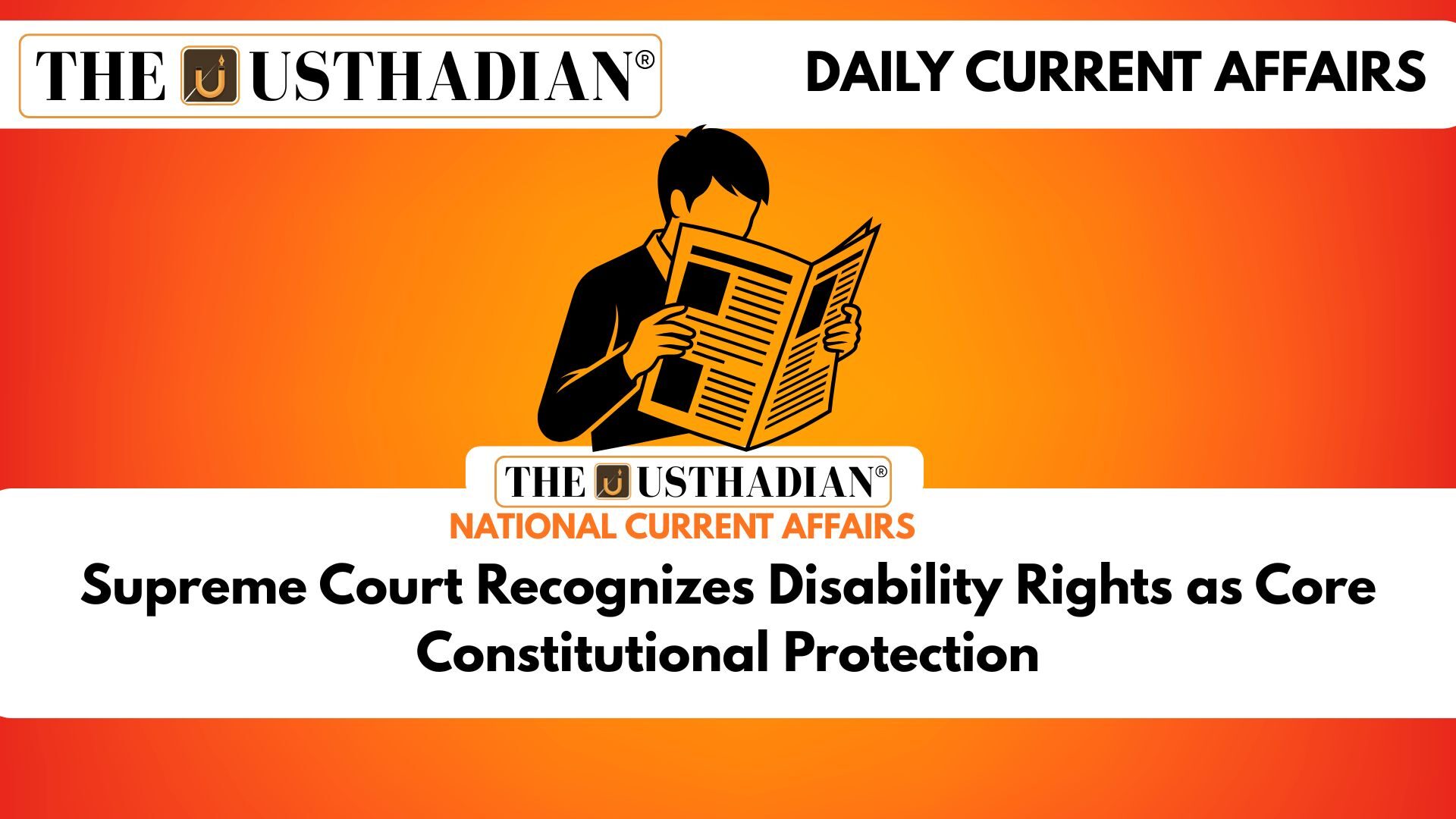Historic Judgment Reinforces Equality for PwDs
Supreme Court Recognizes Disability Rights as Core Constitutional Protection: On March 4, 2025, the Supreme Court of India delivered a landmark verdict declaring that freedom from discrimination based on disability is protected under the fundamental rights guaranteed by the Constitution. This judgment, grounded in the Rights of Persons with Disabilities (RPwD) Act, 2016, is expected to significantly advance the inclusivity of persons with disabilities (PwDs), particularly in sectors like public recruitment and judicial services.
Inclusive Entry into Judicial Services
The Court supported the plea of visually impaired aspirants seeking inclusion in judicial service recruitment, particularly in Madhya Pradesh and Rajasthan. It directed state authorities to finalize the selection process within three months, ensuring that candidates with disabilities are not excluded due to arbitrary rules or bias.
Invalidating Discriminatory Provisions
A bench comprising Justices J B Pardiwala and R Mahadevan declared Rule 6A of the Madhya Pradesh Judicial Service Rules (1994) unconstitutional for completely disqualifying visually impaired candidates. It also struck down Rule 7, which imposed restrictions like 70% marks in the first attempt or three years of practice, as being in violation of the right to equality under the Constitution.
State Must Provide Reasonable Accommodation
The verdict emphasized the legal obligation of governments to ensure reasonable accommodation for PwDs. This includes making adjustments in eligibility norms, cutoff marks, and accessibility standards. The court reaffirmed that affirmative action is not optional, but a constitutional duty aimed at addressing structural disadvantages faced by disabled persons.
Equal Relaxations and Separate Merit Lists
Recognizing the systemic barriers encountered by disabled candidates, the Court ordered that PwDs should receive the same relaxations as those extended to SC/ST candidates. It further directed that separate cut-off lists be prepared for visually impaired aspirants in recruitment examinations, promoting equitable access to public service roles.
Citing Legal Success Stories of PwDs
In its judgment, the Supreme Court acknowledged notable contributions by visually impaired legal professionals, illustrating that disability does not hinder intellectual or legal excellence. The ruling sends a strong message that the nation must value inclusion and celebrate diversity in public institutions.
STATIC GK SNAPSHOT
Supreme Court Recognizes Disability Rights as Core Constitutional Protection:
| Topic | Details |
| Judgment Highlight | Disability rights declared as fundamental rights |
| Judgment Date | March 4, 2025 |
| Judges Involved | Justice J B Pardiwala, Justice R Mahadevan |
| Relevant Law | Rights of Persons with Disabilities Act, 2016 |
| Rules Overturned | Rule 6A and Rule 7 of MP Judicial Service Rules, 1994 |
| Relief Granted | Visually impaired allowed in judicial recruitment |
| Court Deadline | Recruitment to be completed in 3 months |
| Key Principles Upheld | Reasonable accommodation, affirmative action |
| Wider Impact | Enhances equality, access, and legal empowerment of PwDs |








